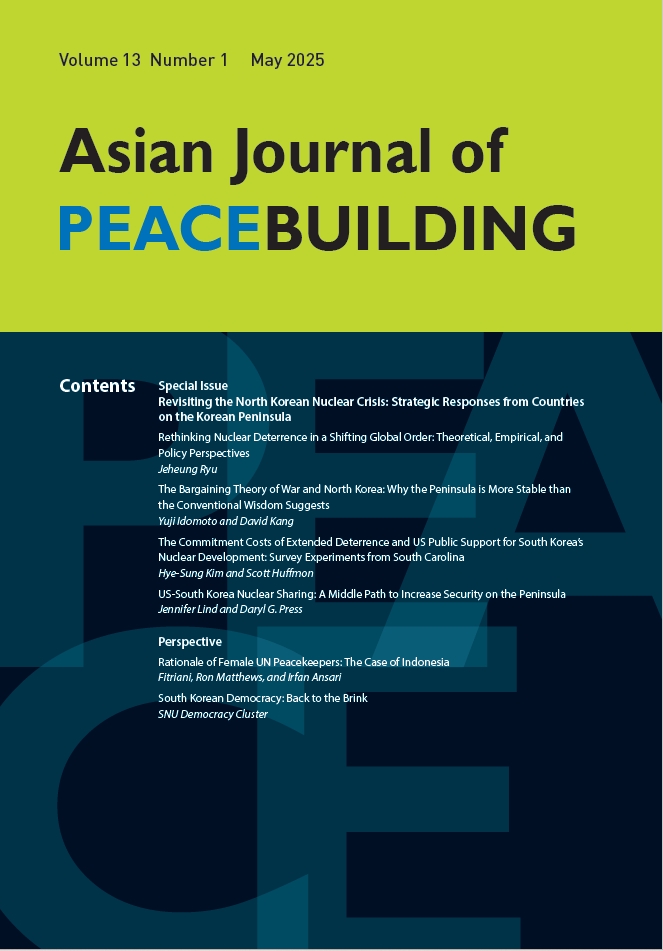Since North Korea’s first nuclear weapons test in 2006, its threat to South Korea has grown significantly. This article assesses South Korea’s changing threat environment and explores its options for strengthening deterrence. We make three key arguments. First, South Korea’s concerns about the state of deterrence on the Peninsula are well founded with growing nuclear dangers and declining credibility of the US extended deterrent. Second, leaders in South Korea have options for responding to these growing threats. Third, one of these options—a nuclear sharing agreement with the US—offers a sensible middle course. Nuclear sharing represents a compromise between the status quo (which leaves South Korea dependent on questionable US extended deterrence) and acquisition of independent capabilities (which may entail high political and economic costs).
Back Issues
Special Issue_Revisiting the North Korean Nuclear Crisis: Strategic Responses from Countries on the Korean Peninsula
US-South Korea Nuclear Sharing: A Middle Path to Increase Security on the Peninsula
Jennifer Lind and Daryl G. Press pp. 73-99 doi: 10.18588/202505.00a548
PDF Download

